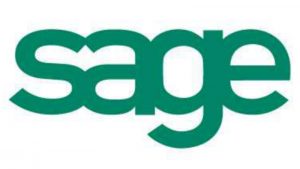A global economic report – ‘A Taxing Problem: the impact of tax on small businesses‘ – from Sage highlights the stark and inefficient impact of tax systems on small and medium enterprises (SMEs) around the world. Findings suggest that the smallest, most vulnerable companies and startups are disadvantaged. In addition, SMEs foot the tax bill of large companies in the US while medium-sized companies report the highest tax-to-profit ratios.

“It’s clear that today’s US tax system has costly implications to small and medium businesses, from both a productivity and cost standpoint,” said Nicole Hardin, Director of Product Management, Sage Business Cloud Financials. “The research shows that both medium and small business in the US are suffering from paying a greater proportion of taxes than large companies, breeding inefficiency within the economy and impacting the US workforce whether full time, self-employed or contractors.”
The Sage research
Undertaken by Plum Consulting, the research analyses the impact of direct and indirect costs of tax on SMES, based on a survey of over 3,000 companies across 11 global markets. The research reveals that micro-businesses (defined as businesses with one to four employees) spend twice as much time on tax-related accounting compared to medium-sized companies (defined as having 100-499 employees). The key lies in the fact that these firms spend the largest percentage of working time per year on tax administration compared to any other business.
The report says:
- micro-businesses spend the highest number of days per year (nearly 30) on tax-related accounting
- small firms spend the greatest proportion of their working time per year on this type of administration (nearly 6% compared to nearly 4% for micro-firms)
- medium-sized companies spend less than 1% of their working time annually on tax administration.
In contrast to the global view, results in the United States paint a different picture in terms of the percentage of profits a firm pays as tax and its size:
- medium-sized companies pay the highest proportion of taxes related to profits (>20%)
- small companies pay 13%.
This suggests the main issue lies within the current tax system in the US. Small and medium businesses appear to be at a disadvantage (compared to large companies) when they have to:
- pay more tax as a percentage of profits
- spend more time on tax-related administration, putting them at a disadvantage .
The US irony?
SMEs make a significant contribution to the US economy. They represent 53% of all businesses and employing 48% of the total labour force. Ergo, the success of these businesses is crucial to the growth of the US economy, and driving their productivity and growth needs recognition of the numerous issues they face as by-product of their size.
Limited resources and large payments – such as annual tax bills – contribute to cashflow problems as well as operational inefficiencies. The impact of unproductive hours which SMES must incur every year dealing with administrative burdens has an implied price (less profits to tax).
What does this mean
What the Sage/Plum Consulting research confirms is that Governments want (tax) revenues but spend far too little time considering how they obtain these. As is so often the case with large organisations (whether commercial or governmental) they seem incapable of imagining how small enterprises work. In acid terms, when you have an army of colleagues who might assist, you do not consider the implications for SME owners and managers with limited resources who might better deploy those limited resources to increase profits.
What the Sage/Plum Consulting research does not explicitly say is simplification of tax systems would probably lead to greater profits and, potentially, bigger tax revenues. Instead, complexity rules.
In some ways this is good for the likes of accounting software vendors, such as Sage. They can offer more added value if they make tax calculations and returns easier. For economies as whole, however, reducing value-subtracting bureaucracy and increasing profits would, one would think, be preferable.



























